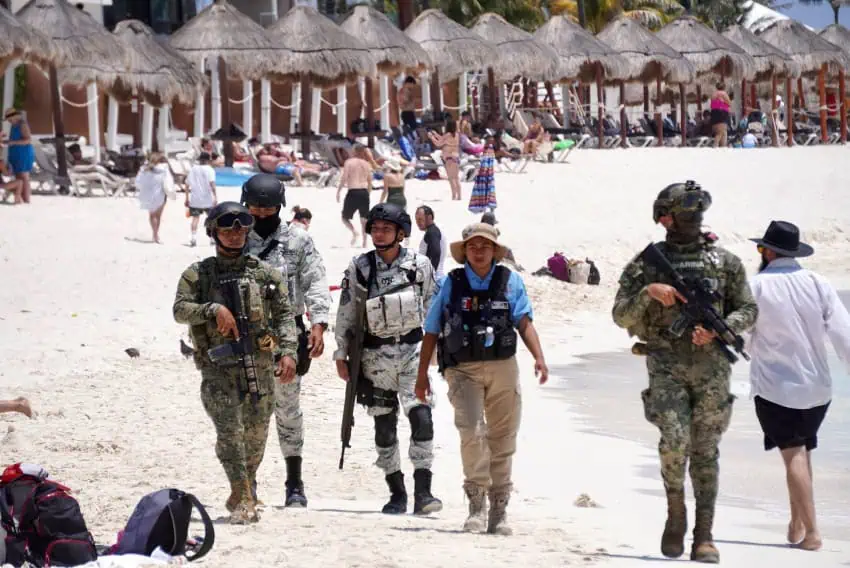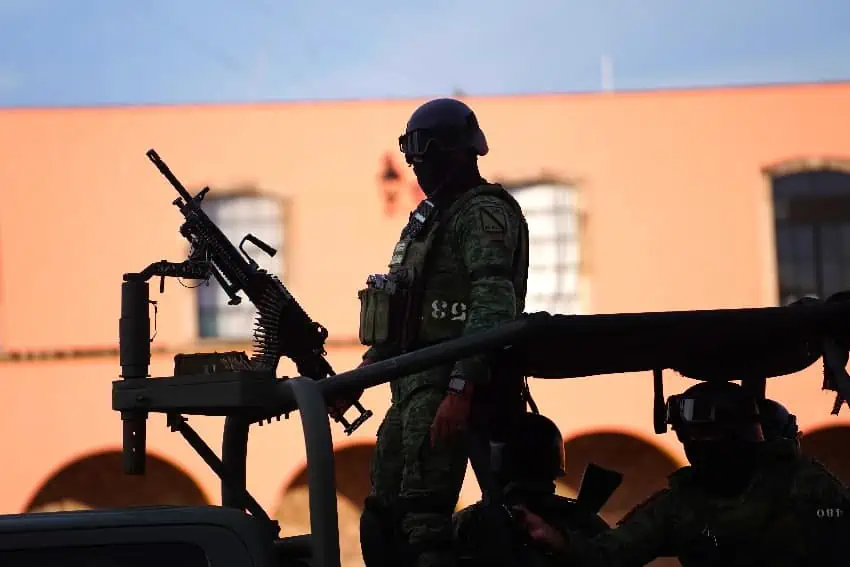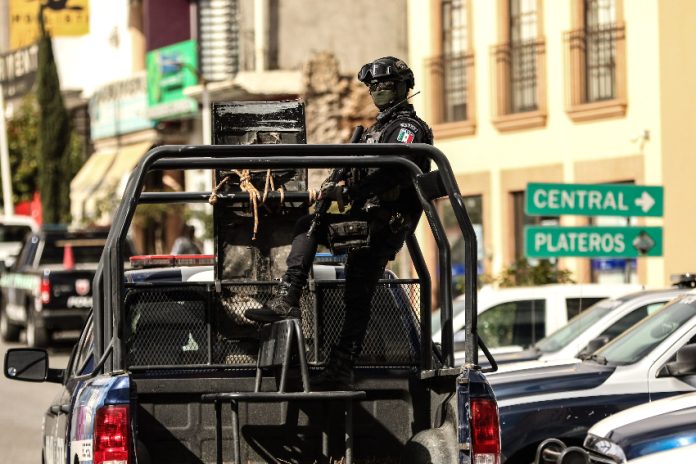Amidst a presidential election campaign in which public security is a major issue, a survey has found that well over half of Mexican urban dwellers consider the city in which they live unsafe.
According to the results of the latest National Survey of Urban Public Security, the percentage of Mexicans with security concerns about their city increased to 61% in the first quarter of 2024 from a 10-year low of 59.1% in the final quarter of last year.
Conducted by the national statistics agency INEGI in the first half of March, the ENSU found that 66.5% of women and 54.5% of men consider their city unsafe.
While the combined figure of 61% is up almost two points compared to the previous survey, it is 1.1 points below the 62.1% result of 12 months ago.
Another finding of the latest survey was that only one-third of respondents (34%) consider their municipal government to be very or somewhat effective in solving the most important problems their cities face.
INEGI conducts the ENSU every quarter in cities in all 31 states. Each of the 16 boroughs of Mexico City are considered separately.

The latest survey was conducted shortly after the commencement of the official campaign period ahead of the June 2 presidential election. Official data shows that homicides declined to their lowest level since 2016 last year, but violence remains a major problem in some parts of Mexico.
In March, all three presidential candidates endorsed a “Commitment for Peace” document drawn up by Mexico’s Roman Catholic leadership, although leading aspirant Claudia Sheinbaum also expressed disagreement with the Church leaders’ assessment of the current security situation and some of the peace-building proposals they put forth.
Which cities have the highest and lowest percentages of residents with personal security concerns?
Fresnillo, Zacatecas, once again had the highest percentage of residents who told INEGI that the city was an unsafe place to live. The latest ENSU found that 95.4% of Fresnillo residents consider the city unsafe, a decline of 1 percentage point compared to the previous survey.
Located about 60 kilometers north of Zacatecas City, Fresnillo has been plagued by violent crime in recent years. The results of each of the four ENSUs conducted in 2023 showed that the city of some 240,000 people was considered unsafe by over 90% of residents.
The cities with the next highest percentages of residents with personal security concerns were:
- Naucalpan, a México state municipality that adjoins Mexico City. Just under nine in 10 residents – 89.6% – consider the municipality an unsafe place to live.
- Zacatecas city, considered unsafe by 89.3% of survey residents.
- Chilpancingo, Guerrero, 87.3%
- Cuernavaca, Morelos, 87%
- Ciudad Obregón, Sonora, 86.6%
The cities with the lowest percentages of residents with personal security concerns were:
- Benito Juárez, a Mexico City borough where the (poor) quality of water is perhaps a bigger concern than insecurity for most residents. Around one in 10 Benito Juárez residents — 11.1% — consider the borough unsafe.
- Piedras Negras, Coahuila, 19%
- Cuajimalpa, Mexico City, 22.5%
- Mérida, Yucatán, 23.2%
- Tampico, Tamaulipas, 23.6%
- Los Cabos, Baja California Sur, 24.8%
Perceptions of insecurity up significantly in 14 cities
INEGI reported that there were statistically significantly changes in perceptions of insecurity between December and March in 18 cities. In 14 of those cities, the percentage of residents who consider their city unsafe rose significantly, while the percentage declined significantly in just four.

The cities where there were significant increases were:
- Mexicali, Baja California, 52.5%-62.7%
- Tijuana, Baja California, 62.2%-73.2%
- La Paz, Baja California Sur, 22.4%-30.4%
- Ciudad del Carmen, Campeche, 47.6%-60.7%
- Colima city, 70.5%-81.9%
- Chihuahua city, 50.4%-59.3%
- Iztapalapa, Mexico City, 62.5%-72%
- Chilpancingo, Guerrero, 76%-87.3%
- Pachuca, Hidalgo, 38.7%-53.7%
- Tlajomulco, Jalisco, 62%-72.7%
- Ciudad Nezahualcóyotl, México state, 58.5%-69.2%
- Monterrey, Nuevo León, 58.6%-70.5%
- San Nicolás de los Garza, Nuevo León, 25.9%-33.9%
- Cancún, Quintana Roo, 74.6%-82.4%
The cities where there were significant decreases were:
- Milpa Alta, Mexico City, 55.5%-46.6%
- Miguel Hidalgo, Mexico City, 46.4%-32.3%
- Ixtapa-Zihuatanejo, Guerrero, 65.2%-56.6%
- San Luis Potosí city, 73%-65.7%
The places where Mexicans most commonly feel unsafe
Just under 70% of ENSU respondents reported feeling unsafe while using ATMs on the street, while 63.9% expressed security concerns about traveling on public transport.
More than 50% of respondents said they felt unsafe at the bank, on the streets they regularly use and on the highway.
Crime and anti-social behavior
Just under six in 10 respondents said they had seen people drinking in the street during the first quarter of 2024, 49% reported having witnessed a robbery or mugging, around four in 10 told INEGI they had seen people buying or consuming drugs and 37% reported having heard frequent gunshots.
A quarter of respondents said they had witnessed some kind of gang activity in the city in which they live.
Opinions on security forces
The Mexican Navy is the country’s most effective security force, according to the results of the latest ENSU. Over 86% of respondents said they believe the navy is very or somewhat effective in preventing and combating crime.

Just over 82% of those polled said the same about the army, while the figure for the National Guard was 73.6%.
Just over 56% of respondents said that state police forces are very or somewhat effective in preventing and combating crime, while 49.4% said the same about municipal police.
Citizens’ security expectations
Around one-third of survey respondents — 33.9% — said they expected the security situation in their city to remain “just as bad” during the next 12 months, while 21.5% predicted a deterioration.
Almost one quarter of those polled — 23.5% — said they expected security to improve in their place of residence during the next 12 months, while 19.2% anticipated that the situation would remain “just as good” as it currently is.
With reports from El Economista and El Universal
